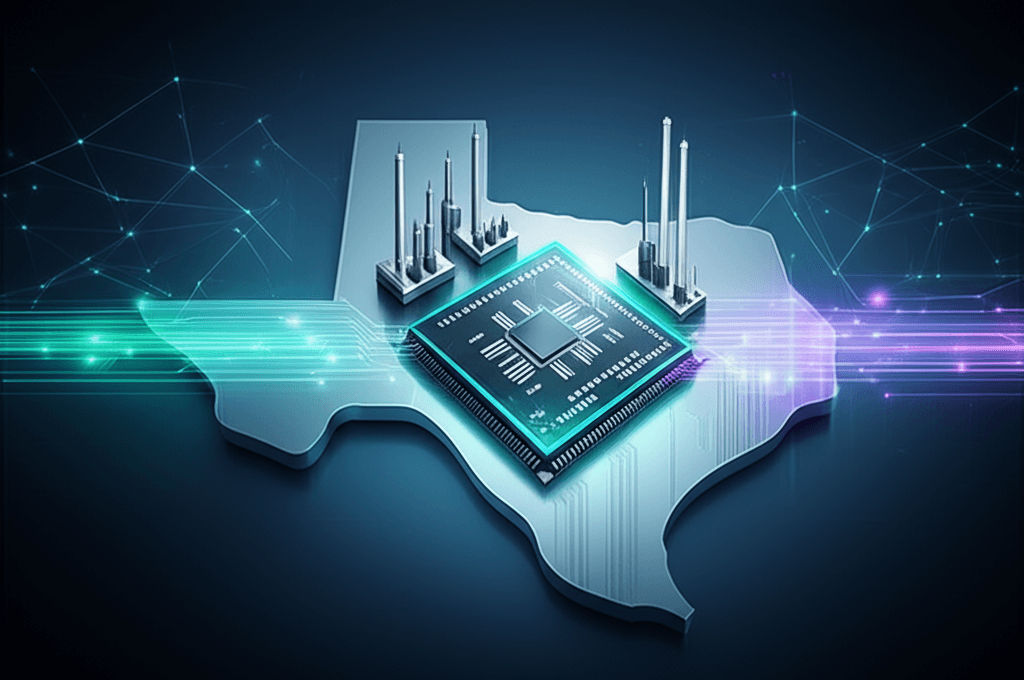Samsung Lands Historic $16.5 Billion Tesla AI Chip Contract, Boosts US Production
Samsung's record $16.5 billion Tesla deal revives its foundry and accelerates U.S. AI chipmaking.
July 28, 2025

In a landmark agreement poised to reshape the landscape of artificial intelligence and semiconductor manufacturing, Samsung Electronics has secured a record-breaking $16.5 billion contract to produce Tesla's next-generation AI chip, the AI6.[1] The deal, confirmed by Tesla CEO Elon Musk, will see the advanced chips fabricated at Samsung's new semiconductor plant currently under construction in Taylor, Texas, solidifying a crucial partnership between the two technology giants and marking a significant boost for America's domestic chip production capabilities.[2][1] This multi-year agreement, running through the end of 2033, represents the single largest foundry contract in Samsung's history and signals a major vote of confidence from one of the world's most demanding technology clients.[3][1]
The specifics of the deal underscore its strategic magnitude for both companies. Initially disclosed in a regulatory filing by Samsung in South Korea without naming the client, the partnership was later confirmed by Musk in a social media post where he stated, "Samsung's giant new Texas fab will be dedicated to making Tesla's next-generation AI6 chip. The strategic importance of this is hard to overstate."[2][1] The new Samsung facility in Taylor, Texas, is conveniently located near Austin, where Musk resides, and is scheduled to begin operations in 2026.[2][1] Musk emphasized a deep level of collaboration, noting that Samsung has agreed to allow Tesla to assist in maximizing manufacturing efficiency, a point he deemed critical.[4][5] He added that he would "personally walk the line to accelerate the pace of progress," indicating an unusually hands-on approach from a client CEO.[1][4]
For Samsung's foundry division, winning this contract is a monumental victory in its fierce competition with Taiwan Semiconductor Manufacturing Co. (TSMC), the world's leading contract chipmaker.[3] Samsung's chipmaking arm has faced challenges in recent years trying to match the scale and yields of TSMC.[3] Securing the Tesla AI6 order not only provides a substantial, long-term revenue stream but also lends renewed credibility to Samsung's advanced manufacturing processes, which will reportedly include its 2nm node for the Tesla chips.[3][6] This deal could revitalize Samsung's foundry business, which has logged significant losses, and strengthens its position as a viable alternative to TSMC for cutting-edge AI workloads.[1] The move is a testament to a potential turnaround in Samsung's yield rates for advanced nodes, which had previously been a concern for potential clients.[7]
The AI6 chip is central to Tesla's ambitious future, designed in-house to power the automaker's most advanced systems.[3] These custom chips are critical for future iterations of its Full Self-Driving (FSD) autonomous driving technology, its Optimus robotics platform, and its powerful Dojo AI training supercomputers.[3] This partnership also clarifies Tesla's evolving chip manufacturing strategy. While Samsung currently produces Tesla's AI4 chip (also known as HW 4.0), Musk revealed that its primary rival, TSMC, has been tapped to produce the forthcoming AI5 chip, initially in Taiwan and later at its facility in Arizona.[2][1] The decision to award the subsequent AI6 generation to Samsung demonstrates Tesla's strategy of leveraging the capabilities of both leading foundries, ensuring a resilient and competitive supply chain for its most critical components. This diversification mitigates risks and allows Tesla to select the best technology for each chip generation.
Beyond the corporate implications for Samsung and Tesla, this agreement represents a significant milestone for the United States' efforts to bolster its domestic semiconductor industry. The manufacturing will take place at the Taylor, Texas, plant, a project heavily supported by the US CHIPS and Science Act, which was designed to reduce American reliance on Asian supply chains for critical technologies.[3] The deal helps anchor a high-volume, advanced-node manufacturing client in the U.S., fulfilling a key goal of federal industrial policy. It positions Texas as an increasingly vital hub for the entire semiconductor ecosystem, from design to fabrication, creating thousands of high-value jobs and strengthening national security by reshoring the production of some of the world's most advanced AI chips.[3][8]
In conclusion, the $16.5 billion alliance between Samsung and Tesla is far more than a simple supply contract; it is a strategic maneuver with far-reaching consequences. It provides a critical lifeline and a major competitive boost to Samsung's foundry business, secures the technological foundation for Tesla's next wave of innovation in AI and autonomy, and delivers a landmark win for the reshoring of American manufacturing. By dedicating a state-of-the-art Texas facility to producing custom-designed AI chips for one of the world's leading technology innovators, the partnership not only fortifies both companies' futures but also redraws the map of global semiconductor production for the coming decade.